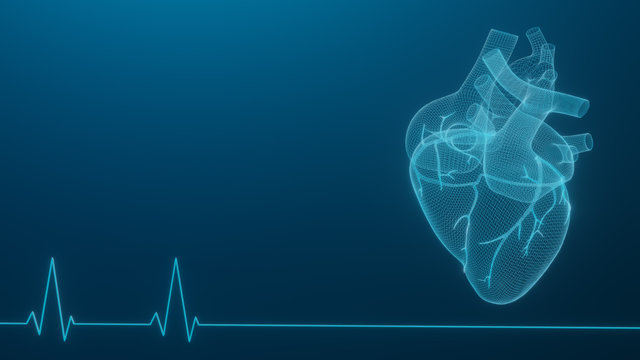How to know it’s time to consult a Cardiologist near me
The Role of Cardiology in Preventative Health And Wellness and Wellness Providers
Cardiology is increasingly acknowledged for its critical function in preventative wellness and health solutions. By emphasizing proactive approaches, cardiologists aim to decrease the occurrence of cardio illness. This strategy includes threat analyses, way of life changes, and regular screenings. Through these efforts, individuals are encouraged to take control of their heart health. Nevertheless, the integration of technology and partnership with various other doctor raises crucial concerns about the future of preventative treatment. What might this evolution entail?

Comprehending Preventative Cardiology
Understanding preventative cardiology entails identifying its crucial role in reducing cardiovascular illness risk with positive procedures. This branch of medicine stresses the relevance of way of living adjustments, including stress and anxiety, workout, and diet plan administration, to avoid heart-related concerns prior to they emerge. It advocates for normal wellness screenings and education and learning to encourage people in making informed health choices.Preventative cardiology likewise encompasses the identification of threat variables such as high blood pressure, diabetes mellitus, and high cholesterol, prompting individuals to adopt much healthier behaviors - Dr Garcia. By concentrating on prevention rather than response, this method not only improves private health and wellness end results yet likewise relieves the total worry on medical care systems. On top of that, it promotes collaboration among health care areas, people, and companies, cultivating a holistic strategy to heart wellness. Inevitably, understanding preventative cardiology influences a change in the direction of a proactive mindset, prioritizing long-term health and well-being
Danger Assessment and Management
Danger assessment is vital in determining cardiovascular risks that can bring about severe wellness issues. Effective monitoring of these threats often involves executing way of life adjustment approaches, such as improved diet plan and raised exercise. By understanding and resolving these factors, individuals can substantially reduce their probability of creating heart diseases.
Recognizing Cardiovascular Dangers
Numerous elements contribute to cardiovascular health and wellness, identifying cardiovascular risks is necessary for effective avoidance and management. Cardiovascular danger analysis includes assessing numerous components, including family background, sex, way of living, and age practices such as smoking cigarettes and physical inactivity. In addition, health and wellness problems like hypertension, diabetes, and high cholesterol significantly influence a person's danger profile. Healthcare professionals make use of devices such as risk calculators and biomarker examinations to measure these risks and stratify people appropriately. Early identification makes it possible for targeted treatments, assisting people toward suitable administration strategies. By identifying these threats, cardiologists can work together with patients to develop customized plans that emphasize monitoring and positive treatment, ultimately decreasing the possibility of adverse cardio events.
Way Of Living Modification Techniques
Efficient way of living adjustment approaches play a vital function in handling cardiovascular health and reducing associated threats. These techniques incorporate nutritional modifications, enhanced exercise, and smoking cessation. A heart-healthy diet regimen rich in fruits, vegetables, whole grains, and lean healthy proteins can significantly decrease cholesterol levels and high blood pressure. Routine physical activity, such as cardiovascular workouts, improves and strengthens the heart circulation. Furthermore, stopping smoking cigarettes reduces the danger of heart problem and enhances overall health. Healthcare professionals frequently utilize danger analysis devices to tailor these modifications to specific demands efficiently. By incorporating way of living become regular care, cardiologists can encourage individuals to take charge of their heart wellness, ultimately resulting in enhanced results and lowered medical care expenses.
Lifestyle Modifications for Heart Health And Wellness
To preserve excellent heart health, individuals should embrace a variety of way of life alterations that significantly minimize the possibility of cardio illness. A well balanced diet plan rich in fruits, veggies, whole grains, and lean healthy proteins is necessary. Lowering saturated fats, trans fats, and sodium consumption can considerably lower cholesterol levels and blood stress. Routine physical task, such as brisk strolling or cycling for at least 150 minutes per week, additionally plays a significant duty in enhancing and reinforcing the heart circulation.Additionally, managing stress and anxiety with techniques like mindfulness and reflection can have a positive effect on heart health. Preventing tobacco items and limiting alcohol consumption better add to a healthier cardiovascular system. Preserving a healthy and balanced weight is essential, as weight problems is a significant danger variable for heart disease. By including these lifestyle modifications, people can foster not just their heart health but also their total well-being, causing an extra energetic and vivid life.
The Importance of Routine Screenings
Along with way of life alterations, routine testings play a crucial function in maintaining heart wellness and protecting against cardiovascular conditions. These evaluations are substantial for determining risk variables such as high blood pressure, high cholesterol, and diabetic issues, which can bring about major issues if left unchecked. Cardiologists suggest regular evaluations to keep an eye on heart feature and identify problems early, allowing for timely intervention.Screenings, which might include blood examinations, electrocardiograms, and echocardiograms, give crucial data for personalized therapy plans. This positive approach empowers people to make educated decisions regarding their health, boosting general health. Furthermore, regular exams promote a more powerful doctor-patient partnership, urging open dialogue regarding heart wellness concerns.
Integrating Modern Technology in Precautionary Treatment
Accepting innovation has transformed preventative treatment in cardiology, using ingenious tools that boost individual tracking and involvement. Wearable gadgets, such as smartwatches and physical fitness trackers, enable individuals to check their heart price, activity degrees, and general health metrics in real-time. These tools not only provide prompt feedback yet likewise assist in information showing doctor, permitting timely interventions when necessary.Additionally, telemedicine has emerged as a noticeable function in cardiology, allowing remote appointments and follow-ups. This ease of access guarantees that patients can obtain care without the obstacles of travel and time restrictions. Mobile health and wellness applications additional support preventative steps by providing customized understandings and reminders for medicine adherence, way of living modifications, and set up screenings.
Individual Education And Learning and Empowerment
Empowerment with education and learning is crucial in the domain name of preventative cardiology, as educated clients are most likely to involve in aggressive health habits. By understanding their cardiovascular wellness, patients can make educated choices concerning lifestyle adjustments and adherence to therapy plans. Educational efforts, consisting of workshops, educational pamphlets, and on the internet resources, offer to boost person understanding about threat variables such as high blood pressure, cholesterol levels, and the value of regular exercise.Moreover, encouraging individuals cultivates a collective approach to health and wellness management. When people know their conditions and the implications of their choices, they are most likely to take part in conversations with medical care service providers, resulting in customized treatment approaches. This partnership not just promotes responsibility however likewise improves inspiration for preserving a heart-healthy way of living (Cardiologist near me). Ultimately, individual education is a foundation of preventative cardiology, gearing up individuals with the devices necessary to organize their cardio wellness and health
Teaming up With Various Other Health Care Professionals
Effective person education and learning lays the groundwork for collaborative efforts amongst medical care specialists in the area of preventative cardiology. Cardiologists, medical care physicians, nutritionists, and mental wellness experts should work in harmony to maximize patient outcomes. By sharing approaches and understandings, these experts can develop complete treatment strategies that deal with both physical and psychological facets of heart health.Regular interdisciplinary conferences foster interaction, ensuring that all staff member are educated regarding client development and obstacles. This cooperation helps with timely interventions and adjustments to therapy plans, improving the performance of preventative measures.Furthermore, integrating innovation, such as common electronic health and wellness records, improves information availability and streamlines control efforts. This alternative method not only improves individual adherence to lifestyle adjustments but additionally empowers people to organize their cardiovascular health and wellness. useful site Inevitably, partnership among health care professionals is vital in promoting a proactive approach to heart problem prevention.
Often Asked Inquiries
What Is the Difference In Between Cardiology and General Healthcare?
Cardiology concentrates on detecting and treating heart-related conditions, while general healthcare encompasses a wider series of medical solutions addressing various health issues - Cardiology care. Each plays a crucial role in maintaining overall health and well-being
Exactly how Commonly Should I See a Cardiologist for Preventative Care?
The frequency of cardiologist gos to for preventative care differs based upon specific danger factors. Usually, annual examinations are suggested for those with present conditions, while others may need much less regular examinations based on overall heart health.
Can Tension Influence My Heart Wellness Substantially?
Anxiety can considerably influence heart health and wellness by adding to hypertension, swelling, and harmful way of life options. Individuals experiencing chronic stress may be at increased risk for cardiovascular issues, demanding effective tension administration approaches for much better heart health.
Exist Certain Heart Disease I Should Recognize?
Individuals must recognize conditions like high blood pressure, coronary artery disease, Go Here cardiac arrest, arrhythmias, and valvular heart problem. Recognizing these problems early can result in far better administration and improved general heart health outcomes.

What Are the Prices Connected With Preventative Cardiology Services?
The prices related to preventative cardiology solutions can differ substantially. Factors such as area, sort of solution, and insurance policy protection impact general costs, making it essential for individuals to seek detailed info particular to their scenarios. With these efforts, individuals are encouraged to take control of their heart health. It supports for routine wellness screenings and education to equip individuals in making enlightened health and wellness choices.Preventative cardiology likewise encompasses the recognition of risk variables such as high blood pressure, diabetic issues, and high cholesterol, urging people to embrace healthier habits. In addition, it advertises collaboration amongst medical check my blog care individuals, areas, and service providers, cultivating an alternative approach to heart health and wellness. Regular physical task, such as brisk walking or biking for at least 150 mins per week, also plays a significant role in reinforcing the heart and improving circulation.Additionally, handling anxiety via methods like mindfulness and reflection can have a positive impact on heart wellness. Cardiology specializes in diagnosing and dealing with heart-related conditions, while general wellness care encompasses a more comprehensive range of clinical solutions resolving numerous wellness issues.